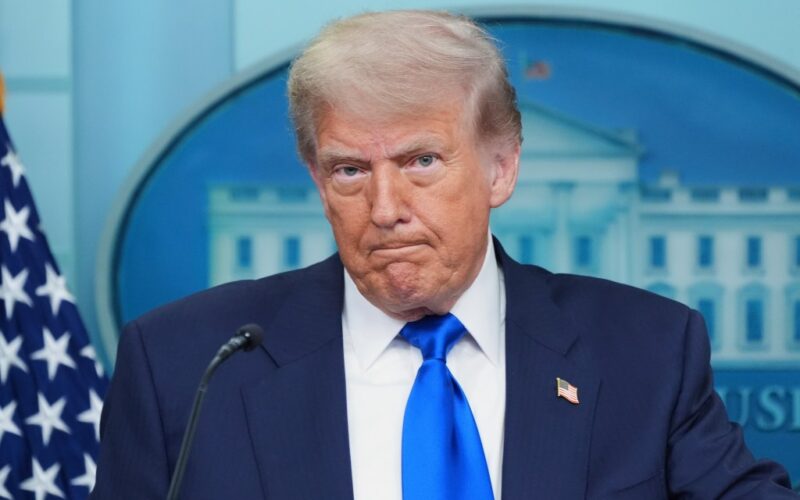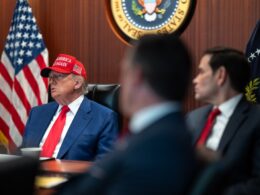You’ve probably heard of “soft power.” The word “soft” has many connotations, among them “feeble” or “weak.” Softness also denotes gentleness, kindness, tenderness, so the term, “soft power” may seem inherently contradictory. However, kindness possesses its own power, exerting a force more enduring than brute strength. “Soft power,” therefore, is anything but an oxymoron.
Unlike “hard power,” which can be quantified in terms of military might, soft power is more qualitative in nature. Yet, it is more likely to shift attitudes and alliances than shows of force. Conversely, hard power is demonstrated by, say, a military exercise, such as a parade featuring tanks.
Certainly, our president’s barrage of missile strikes under the macho banner “Midnight Hammer” — after having previously withdrawn the U.S. from the Obama-established U.S./Iran nuclear accords, an agreement that blocked “every possible pathway Iran could use to build a nuclear bomb” — sends a “hard power” message of intimidation. Its long-term effectiveness remains to be seen.
Soft power, however, has a long-established record of success. Its genesis reaches back into our history and is directly related to the health and wellbeing of our nation’s inhabitants, and, more broadly, global health.
After the successful Marshall Plan, a foreign aid package that helped restore Europe’s infrastructure after the ravages of World War II, successive presidents launched aid programs to bolster nations where colonial rule, poverty and disease threatened their people. Not only did their work save lives and protect nascent democracies, it helped the U.S. forge a reputation for compassionate care, enhancing our standing in the world.
Most of us have people we consider our role models and guides as we navigate the pursuit of a meaningful life. We gravitate toward those whose actions embody certain ideals, and we pattern ourselves after leaders whose actions reflect our aspirational beliefs. It is not so much what they say that impresses us; it is how closely what they do matches their professed ideals. The more they uphold their values by acting in concert with them, the more we trust them. It is that hard-won trust that keeps the relationship intact — trust that takes effort to build, but can dissolve in one momentary betrayal.
Similarly, fledgling democracies and countries in crisis have looked to the U.S. as a model nation, a symbol of hope and source of aid. In 1961, USAID was established, providing food and water to those in extreme poverty, and, in partnership with the WHO, a variety of life-saving medicines. Together they eradicated smallpox and dramatically reduced the incidence of polio. And as the governing agency of PEPFAR, USAID saved almost 26 million lives by providing preventative HIV-AIDS drugs.
In South Africa, with 7.9 million HIV infections and where the dominant mode of transmission is heterosexual sex, women and children infected in utero account for the majority of illness. Viruses, unlike people, do not discriminate.
Now that DOGE has decimated USAID, the women and children who would have been saved are already dying from preventable illness. Food supply, access to clean water — aid that cost less than one percent of our national budget — all eliminated under the guise of saving taxpayers while the “One Big Beautiful Bill” will only increase our national debt. The Congressional Budget Office estimates that 15.7 million Americans could lose health care if the budget is approved.
Moreover, the whole world’s watching as our entire domestic scientific community is disempowered, directly endangering the health of U.S. citizens. Universities have endured massive cuts to cancer, Alzheimer’s and COVID-19 research. And most recently, U.S. Health Secretary Bobby Kennedy halted vaccine research for HIV and bird flu. In early June, he fired the entire CDC vaccination board. If trust was lost by the elimination of foreign aid, imagine the hit to our reputation as the world sees our government turn its back on its own citizens’ health.
Unsurprisingly, a recent survey reveals that 75% of researchers are considering moving abroad as a result of the anti-science wave. The imminent brain drain, which will deprive us of the scientific knowledge that informs both soft and hard power, recalls the exodus of brilliant physicists fleeing Germany in the 1930s — (our own NIH website refers to it as “Hitler’s Gift”) — men like Max Born, widely considered a mentor of Robert Oppenheimer. We all know how that ended: an atomic bomb test in the New Mexico desert.
Now that was a display of hard power.
Boulanger is a writer and educator, whose memoir, “A Song for Olaf, was released on June 1.








